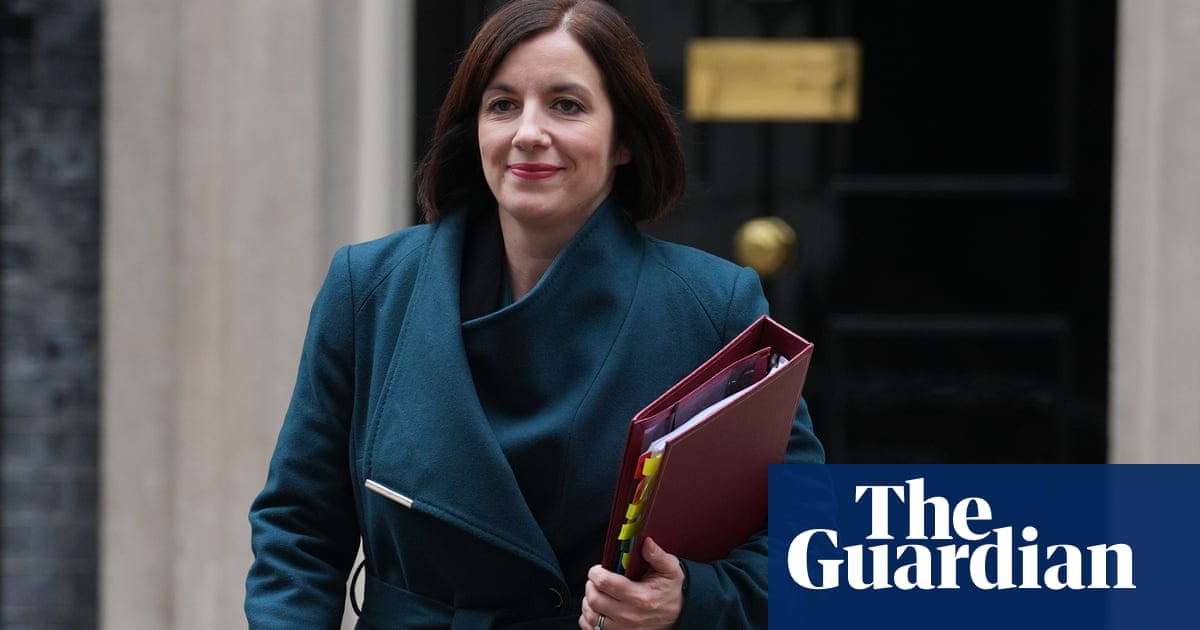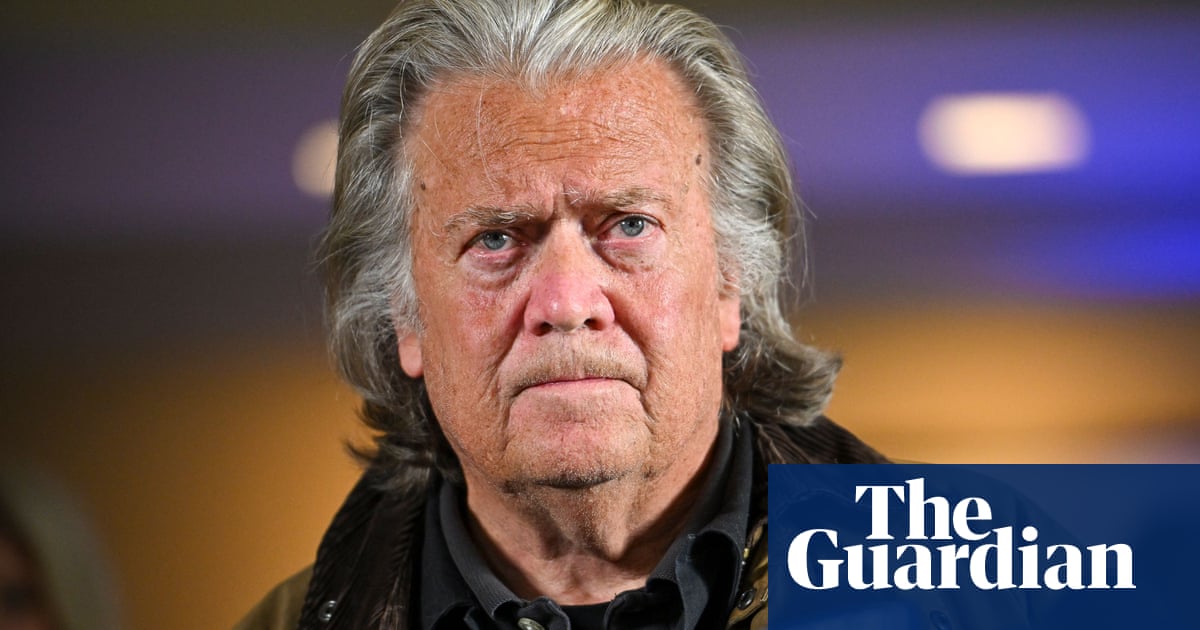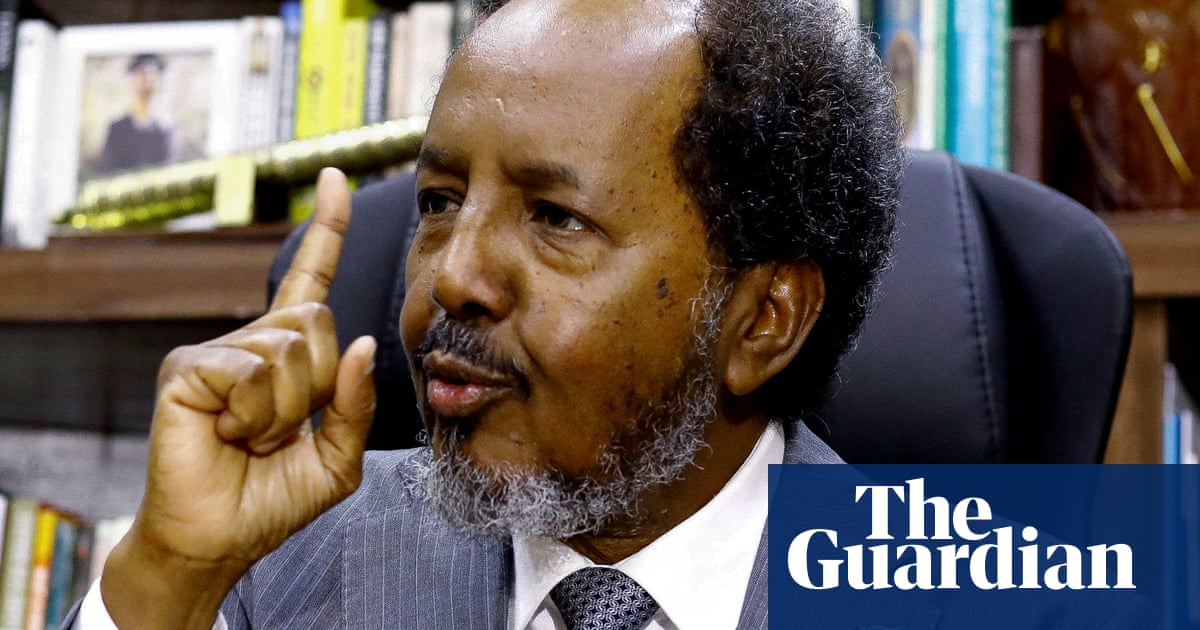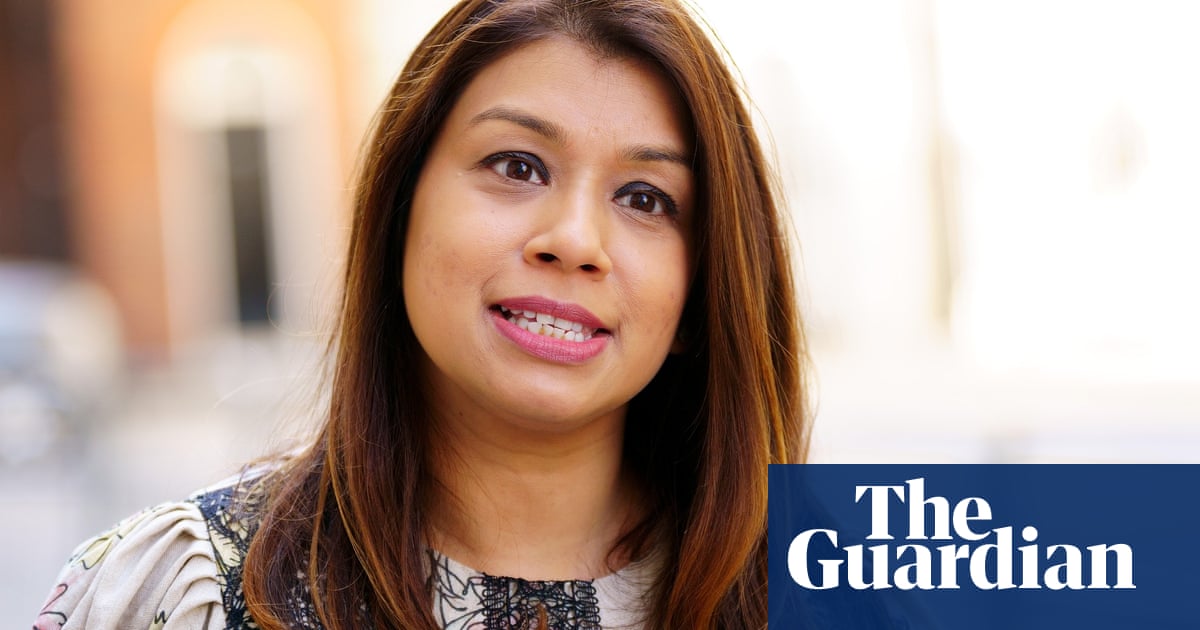Peter Sarsgaard appears on Zoom as he often does on film: quiet, soft-spoken, gentle poise concealing grave thoughts within. Now 53, he has been an actor for three decades, a star of independent films and big-money Hollywood productions in which he tends to depict men with ulterior motives – men who are not what they seem at first. As we talk online, he is sitting in the offices of Paramount Pictures, in New York, appearing chill – dark suit, white shirt open at the collar, silver rings in each ear – only to suddenly cackle pleasantly at a dark thought. “Face-value people are pretty tough,” he says, of character parts he prefers to turn down. “Like, straightforward.” He pauses. “Sincerity is difficult to play.”
Sarsgaard will soon appear in September 5, a film that recounts the 1972 Munich massacre, during which members of the Israeli Olympic team were taken hostage by Palestinian terrorists, as broadcast by an ABC sports crew who covered the episode live. Sarsgaard plays Roone Arledge, a brusque ABC executive. Much of his time on screen involves battling with higher-ups in order to maintain his team’s access to a story he believes, for better or worse, is a must-watch. As events progress, new questions of morality arise: if a hostage is executed and the moment captured in real time, should the footage be broadcast? In what ways does the live coverage of graphic brutality benefit viewers? In fact, for much of the ABC broadcast “nothing really happens,” Sarsgaard says. Cameras fix on a news anchor, stationed in a Munich studio, who is required to share and re-share scraps of incomplete information. The real tragedy unfolds out of sight.
ABC’s coverage in Munich was one of the first instances of breaking news being shown live internationally. About 900 million people tuned into the broadcast and it became a touchstone for news today; wars, elections, insurrections, mass shootings – are all covered in similar ways. “Think of the boys trapped in the cave,” Sarsgaard says. “Baby Jessica down the well.” Traumatic events that briefly bring entire nations together, slamming our senses. Before filming, Sarsgaard hadn’t considered ABC’s approach in Munich to be untoward. “We’re so used to it,” he says of rolling coverage. But then it hit him. “Why are we pointing a live camera at this? What is it satisfying? Our need to know, as citizens, to make decisions about the way we live together? Or some other darker human predilection or craving?”

Sarsgaard will not always watch the news. “So many stories that are sensational and violent on television have to do with individual misery,” he says, “and are not helpful in terms of changing the way we behave in the world.” Watching tragedy unfold affects him deeply. “I get very moved by seeing a building bombed, the mushroom cloud, this image playing behind a TV news anchor.” He will begin to picture the lives of the building’s inhabitants, “to the point where I will imagine what those last moments might have felt like.” What if a man, while eating a sandwich, notices a whistling sound growing steadily louder and more menacing, he says, “and he locks eyes with the people he loves, or he screams, or… I think about it on a very detailed level like that.”
Sometimes, Sarsgaard feels it is simply better not to look. He recalls working with an actor who saw footage of the American journalist Daniel Pearl being decapitated by Islamist militants. “And then he came to work,” Sarsgaard says, “and I was amazed both at how much it affected him and also how little it affected him – that he’d seen this video, like, two hours before, and now he was somehow fine with doing the jokes we were doing in the scene.”
He shakes his head lightly. “Why would you search out that image? Does it help you to have seen Daniel Pearl be decapitated? Can’t we all just believe that he was?” Apparently, we can’t. “There are people at this point who will doubt that something is happening unless they see it.” Sarsgaard brings up an idea discussed by the documentary filmmaker Errol Morris, that “what we see no longer changes our beliefs” and that “we can project any meaning on to an image, because we are all in such isolated little pockets of points of view”. He sighs. During the January 6 insurrection, he felt “keenly aware that a large portion of the country was celebrating those actions and a large portion was abhorring them.” He goes on, “I worry about history. Now we have people who deny its relevance or its meaning, will it become something different? Can a story be changed because our beliefs have changed what we see?”
Sarsgaard is married to the actor and director Maggie Gyllenhaal. The couple live in a Brooklyn brownstone and have two daughters, one of whom is studying at Columbia University. As a father, he is concerned about imagery now accessible to young people. “I think the violence available online distorts the idea of what violence is. I think people get desensitised to it, just as they get desensitised to sex through pornography. And you have this generation of people who have this very bizarre relationship to both.” He recalls the news being “different” when he was a child. (Sarsgaard was born in 1971, a year before the Munich Olympics.) “It certainly wasn’t entertaining. They were talking about events that had taken place the day before. And it was good to know that a building was bombed – that was valuable. But that’s certainly not what we have now.”
The actor has an empathetic worldview. He has said that “There are no bad people, only people who do bad things,” an opinion he has attributed to his Catholic upbringing. “A lot of my beliefs came from being a Catholic,” he says. “And a lot of them weren’t thought-out – they were more acquired by the dogma I bought into.” For a while, Sarsgaard served as an alter boy. He considers himself no longer a practising Catholic, though “I still cross myself when I move from one side of the church to the other; I still take holy water; if I take communion, I have a whole moment with myself about transubstantiation.” At high school he attended mandatory confession once a week. “I would ask for a blessing because I was too scared to say all the stuff that I’d done. But then I found myself inventing things, because they were catching on to the fact I wasn’t saying much.”
Sarsgaard is an only child. His father was an engineer in the US air force, and the family lived for a while on a base in southern Illinois. Later he worked for IBM. They moved frequently – St Louis, Oklahoma City, Memphis, Eureka Springs – and Sarsgaard describes his upbringing as “pretty itinerant”. As a child, he was drawn less to the light and more to the dark. He was the kind of boy who made intense friendships with individuals, rather than mooching around in a pack. He frequently escaped his home only to later break back in. In his retelling, his parents do not seem to be overly present. “I would say I was a latchkey kid,” he recalls, “but I never had a key.”

Still, he was ultimately good. “There are a lot of things that are messed up about being a Catholic. But the good thing I got from it is that I really think about the ethical thing to do. I haven’t always done it. But I’ve always, always had a moment of confession in my head. And if you’re conscious of what you’ve done, even if it’s messed up, that’s step one.”
As a child, Sarsgaard became very good at football, but a series of head injuries prevented him from pursuing the sport at higher levels. After accepting medical advice that he should not play again, a friend suggested he act. “It was immediate,” he says, “like something I never knew I was missing.” Acting became an opportunity to “express things that I had never been encouraged to express.” In his early 20s, he began performing in a Washington offshoot of the Actor’s Studio. He made his film debut in Dead Man Walking, when he was 22, in which he appeared opposite Susan Sarandon and Sean Penn. He’s been working steadily ever since.
Until he began to act, Sarsgaard had never been involved in an argument. “Acting helped me become a more fully evolved person.” He describes growing up in “pretty closeted parts of America, in every way,” but particularly in regards to sexuality. The cities he lived in could feel safe but stifling and film became “about experiencing something foreign, something different from my little midwestern American world”.
His family was not the kind to express emotion. “I come from circumstances where people…” he starts, before considering. “I lived with a lot of very sensitive people. Mental illness was a real thing in my house. Around those people, in those types of potentially volatile situations, you want to keep everything chill. And I’m very good at it. I spent a lot of my time as a kid trying to read the minds of people who didn’t know their own minds. It’s a skill I developed. I’m frequently thinking about what other people are thinking.” He has a friend who can never tell when people are lying, he says, but “I can always tell when people are lying. And it doesn’t necessarily mean I have a problem with them – it turns out people lie often. It’s more like information to me. I go, ‘Oh, what would make them lie about that?’”
I ask, “In what way was mental illness present in your house?”
“Oh, I’d rather not say,” he says, and shrugs in apology. “But it was very much around me, all the time, 24/7. You know, I was supported in many ways as a kid, also. Everyone in my extended family was thinking about my welfare. Even to this day, I have these three female cousins…” He smiles. “One of them thought that if she pet me enough, like, on the head, that it would make be a better person.”
Sarsgaard describes his family as eccentric. “My aunt Mary is basically the mayor of Eureka Springs, Arkansas,” he says, “which is a very artsy place in the mountains. She has friends with names like Crescent Dragon Wagon. My mother is an artist. My dad’s interest is photography. My grandfather was an outsider artist, basically. I grew up around people expressing themselves constantly. My grandmother, who never read Faulkner, used to tell me we were the people Faulkner wrote about.” Sarsgaard believes in the necessity of art for a meaningful life. “I used to get into an argument with a friend who went on to be an anaesthesiologist. He was like, ‘What you do is not necessary. Medicine is necessary.’ I said, ‘How about we both have to live with meaning in our lives?’”
For many years, Sarsgaard’s creative life has run comfortably alongside Gyllenhaal’s. The couple met at a dinner in 2001. For a while, Sarsgaard didn’t realise Gyllenhaal was an actor. When they were first dating, she showed Sarsgaard Secretary, in which she starred, and Sarsgaard showed Gyllenhaal a project of his own, The Center of the World. Both films deal in sex and power. They were married in 2009, in a small service in Brindisi, Italy.

In 2021, Sarsgaard appeared in The Lost Daughter, an adaptation of the Elena Ferrante novel that was also Gyllenhaal’s first film as director. “I worked a couple of days on that movie,” he says. “It was important to me.” But otherwise he looked after the couple’s daughters, allowing Gyllenhaal to continue with her work. Gyllenhaal later praised Sarsgaard for “holding up the family side of things,” an idea he now meets with a kind of shrug. “It’s my number one priority anyway,” he says. “Not because of a sense I should do it, but because I want to do it.” Later he adds, “We’ve both made sacrifices in our careers to have the type of family environment we want to have. And it’s rare that either one of us sacrifices something that we really should do.” He considers for a moment. “I’m going to say it’s happened once or twice, in just really extenuating circumstances.”
As a child, Sarsgaard played and listened to a lot of music, and it remains present in the home he shares with his family: Fred Astaire, Charlie XCX. The other day, Sarsgaard’s eldest daughter announced she wanted to play the double bass. “She has very minimal experience playing it,” he says, “but I went downtown, I rented a double bass, I got on the subway with the double bass, I went all the way up to Columbia with the double bass… And I don’t even know how long that interest will go for, but it’s some new thing that popped up and, you know, you get excited about the possibility of this for her.” Fatherhood, he believes, involves watching “new parts” of your children “open up” – and supporting those interests. “My eldest has played many different instruments, some of them well, others less well. My youngest is a one-instrument person. Music is kind of mandatory in our house. There’s a family band that has to happen.”
Talk returns to Trump. “It’s worth knowing that this is what popular sentiment is,” he says of the election outcome. America must accept that this is how America feels, he adds. “But it’s also worth knowing that a huge percentage of Americans didn’t vote,” and that “our big problem here is that voting is optional.” On election night, Sarsgaard had a meal with friends, avoiding the TV broadcasts, because “we kind of knew what was going on”. He told himself, “Don’t look until morning.” And then morning came.
In a 2022 interview, Sarsgaard said he expected Trump to become president again. “I know a lot of people who believe in Trump because of one issue,” he says. “It varies what that issue is, but a lot of these issues are real.” Someone Sarsgaard knows – “a guy I respect” – recently took his children out of school in response to disagreements around a transgender issue. “It was something he was scared of. He didn’t understand. So now he’s home schooling his kids.” He continues, “This is a very wealthy man. He gave a fundraiser for Trump in Silicon Valley. He was concerned with a sort of eroding of what he considered to be principle values.” After a pause he adds, “I don’t think that lets him off the hook.”

I ask him what it feels like to be American in this moment. “Sometimes I act Danish,” he says (Sarsgaard’s grandparents were Danish). “I put on a Danish accent.” Then he adds, “I have a lot of British friends and European friends, and they ask me how it happened. I think it comes down to ignorance, a lack of education, the government not caring about the issues affecting a lot of the people in our country who are living in a way that is more hand-to-mouth.” In Trump, supporters see “somebody who is promising something significant,” he says. “He looks like the type of person who can change things: he’s a large, rich, white bloat of a man. People blame DC – and he’s the guy who’s promising to take an axe to it.”
I ask what role the media has played in Trump’s ascendancy. “Without the media he would be nothing,” he says. Trump, in Sarsgaard’s eyes, is a kind of vicious spectacle. “But why is our attention drawn to outrage? Outrage is one of the main fuels of news journalism. Violence and outrage. Well, he’s got all of that.”
As a child, Sarsgaard watched a different kind of politician: men he might not have aligned with idealistically but who at least seemed decent. “I grew up with Jimmy Carter, who I liked, deeply, as a person. He was the type of Southerner I knew: compassionate, gentle, strong, a unicorn as far as presidents go. I remember Ford a bit, but I was disinterested. And even with Reagan – though I didn’t agree with him and, though I thought the way he handled the Aids crisis was awful, I saw some moral integrity in the person. Obviously, that isn’t important any more. There’s so much anger and outrage. People want someone who can hold that for them.”
September 5 is released in cinemas in the UK on 24 January

.png) 1 month ago
7
1 month ago
7













































